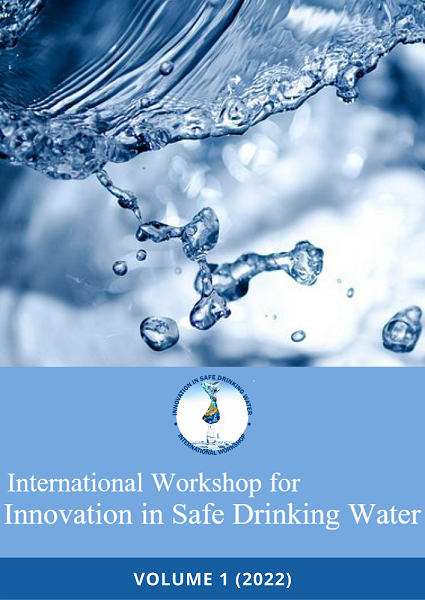Resumo
The newest model of the Water Security Plan (WSP) has been piloted in some countries to warn sanitation service managers about the risks to climate resilience (CR). The bibliometric analysis was performed (2015 to 2022) on the Web of Science database with the string "water safety, climate, risk, drinking water", operator AND in "all fields", merging complete records and quoting references from Vosviewer software. The results identified 65 international articles on WSP-CR, and six of them were selected in this analysis. Most of the available studies do not address threats from climate change in sanitation systems and river basins. The challenges of the WSP-CR applications are: i) data reliability, ii) the feasibility of implementing the model and the existence of few studies on this topic, and, iii) the complexity of the model in water supply systems, especially in small communities. Among the opportunities, the following stand out: the implementation of the plan with a sustainability and urban resilience bias leads to a better performance of the long-term water supply system to the public manager due to multidisciplinary aspects of decision makers.
Referências
BERESKIE, T.; DELPLA, I.; RODRIGUEZ, M.J.; SADIQ, R. Drinking-water management in Canadian provinces and territories: a review and comparison of management approaches for ensuring safe drinking water. Water Policy, v.20, p: 565–596, 2018.
HOEKSTRA, A.Y.; BUURMAN, J.; VAN GINKEL, K.C.H. Urban Water Security: A Review. Environmental Research Letters, v.13, 2018. 15p.
HOWARD, G.; CALOW, R.; MACDONALD, A.; BARTRAM, J. Climate Change and Water and Sanitation: Likely Impacts and Emerging Trends for Action. Annual Review of Environment and Resources, v.41, p. 253-276, 2016.
PÁEZ-CURTIDOR, N.; KEILMANN-GONDHALEKAR, D.; DREWES, J.E. Application of the Water-Energy-Food Nexus Approach to the Climate-Resilient Water Safety Plan of Leh Town, India. Sustainability, v.13, 2021, 29p.
RAND, E.C.; FOSTER, T., SAMI, R.; SAMMY, E. Review of water safety planning processes and options for improved climate resilient infrastructure in Vanuatu. Water Practice & Technology, v. 17, n. 3, p. 675-683, 2022.
RICKERT, B.; VAN DEN BERG, H.; BEKURE, K.; GIRMA, S.; HUSMAN, A.M.R. Including aspects of climate change into water safety planning: Literature review of global experience and case studies from Ethiopian urban supplies. International Journal of Hygiene and Environmental Health, v.222, p: 744–755, 2019.
VAN DEN BERG, H.; RICKERT, B.; IBRAHIM, S.; BEKURE, K.; GICHILE, H.; GIRMA, S.; AZEZEW, A.; BELAYNEH. T.Z.; TADESSE, S., TEFERI, Z.; ABERA, F.; GIRMA, S.; TESFAYE L.; TRUNEH, D.; LYNCH, G.; JANSE, I.; HUSMAN, A.M.R. Linking water quality monitoring and climate-resilient water safety planning in two urban drinking water utilities in Ethiopia. Journal of Water and Health, v17, n. 6, p: 989-1001, 2019.
WORLD HEALTH ORGANIZATION (WHO). Climate-Resilient Water Safety Plans: Managing Health Risks Associated with Climate Variability and Change. WHO: Geneva, Switzerland, 2017. 92p.

Este trabalho está licenciado sob uma licença Creative Commons Attribution 4.0 International License.
Copyright (c) 2022 Katia Sakihama Ventura, Aline Souza Sardinha, Danilo Rezende
